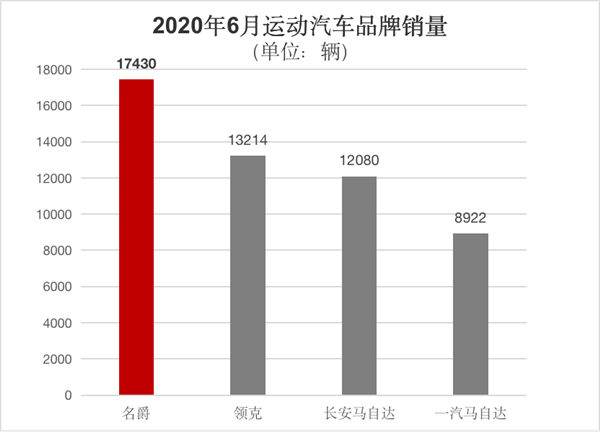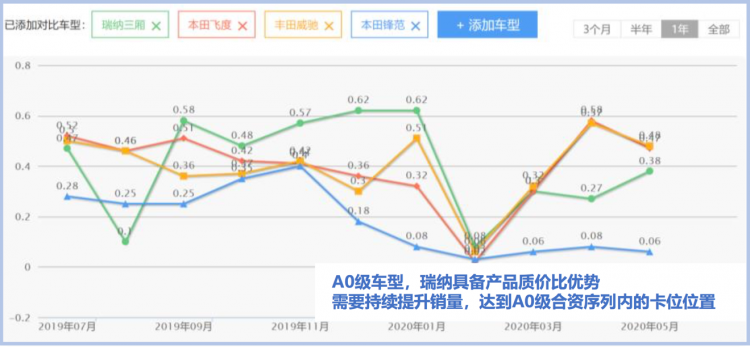Seven years ago, when Xiaozhu short-term rent started from a sofa as a shared accommodation, Chinese people generally regarded “living in a stranger’s house” or “living in a stranger’s house” as a rather scary thing. “We have no landlords, no tenants, and no credit environment and credit system to support accommodation sharing. When we talk about our dreams with people around us, we get ridiculed. We are like digging a well in the desert”, CEO of Xiaozhu Short-term Rent Chen Chi said when recalling the hardships of the year.

Chen Chi, co-founder and CEO of Xiaozhu short-term rental
Seven years later, at the new brand strategy conference held by Xiaozhu Short-term Rent on May 17, Chen Chi shared two sets of latest data, “According to the data of the National Information Center, 80 million consumers use shared accommodation a year . At the same time, according to our own research, in the past year in first- and second-tier cities, more than 52 users have used shared accommodation during travel.”
In 7 years, the changes have been so great that even those who are not familiar with this field have had time to adapt. How did all this happen? Is it the hard work and persistence of Xiaozhu’s short-term rental that has renewed the “prejudice” of the Chinese people? Or has the progress of the times nourished a group of people who are more open and confident, thus creating the short-term rental of piglets?
Perhaps, having both is closer to the truth of the matter. Shared accommodation is an “imported product” originally born in the United States. The innate model does not adapt well to China’s national conditions. Some people call Xiaozhu short-term rental a “Chinese apprentice” of an overseas shared accommodation platform. The illusion of simplification. From the very beginning, Xiaozhu short-term rental has carried out comprehensive innovations based on China’s national conditions to make it more suitable for Chinese consumers.
“In the early days, Xiaozhu’s short-term rental was indeed a very standard platform model. Landlords shared houses here, and users found the houses they wanted to trade, but soon we found that this model did not work,” Chen Chi told LvJieMedia, “In addition to the functions of the trading platform, we found that we need to do more to solve the problems of the actual check-in experience. For example, in the early days, we would help the landlord to clean the toilet; The intelligent system integrates the data chain into the reservation chain; when the landlord cannot provide guaranteed sanitation services, we have established a collaborative network cleaning system.”
Usually the platform’s approach is to match transactions, and not to participate in other hard work. This is feasible in developed countries with high-quality landlords and good housing facilities. But in China, Xiaozhu short-term rent did not simply look at shared accommodation from the perspective of a platform at the beginning. Xiaozhu short-term rent is not a pure platform, but a “cultivator” who has done a lot of construction work in strengthening the shared accommodation infrastructure. “. It is the construction of these infrastructures that enable shared accommodation to gain enough trust in China, provide sufficient consumer experience, and finally complete the reversal of social concepts from conservative to open, from suspicion to trust.
Today, shared accommodation has completed the “ice breaking” in China, and is converging into an increasingly strong torrent. As an icebreaker in the industry, what is the goal of Xiaozhu short-term rental in the next stage? This is the question that Chen Chi wants to answer, and it is also one of the purposes of the brand launch event held by Xiaozhu short-term rental on May 17.
From digging a well to nourishing the whole ecology
“We still have a long way to go, there is still a lot of space to be explored, and many things need to be innovated,” Chen Chi said at the press conference, “Take digging a well in the desert as an example, we just dug a well now , in fact, it is more important to use the dug water to turn the desert into an oasis. This ecology has just begun, and it will become a living body, and it will become a truly complex and rich ecology.”

In terms of specific directions, Xiaozhu short-term rental has seen two obvious trends in the field of shared accommodation. One is personalized features . From the perspective of consumers, today’s consumers no longer only need basic products and services like ten years ago. They hope that every service they get is what they want, not a standardized service. On the other hand, on the supply side, under the shared accommodation model, the landlord is also a living individual. Each person has a different background and aesthetics, and has a different understanding of accommodation and service. When demand and supply are linked together, the trend of personalization has emerged, and it is getting faster and faster . Ten years later, this market must be very personalized and diverse.
The second trend is quality . When Xiaozhu short-term rental first entered this industry, many people thought that living in short-term rental was a sign of downgrading consumption. However, the short-term rental market has undergone great changes in the past two or three years. The products provided by the landlord are also more quality.
Based on the above two trends, Xiaozhu short-term rent puts forward a new positioning for itself, ” a quality and characteristic accommodation provider “.
“In terms of characteristics, we want to expand the boundaries of categories. In the past, we were very focused on housing listings in cities and sharing with landlords,” said Chen Chi. , When going to scenic spots, we will expand from unit houses and community houses to boutique homestays in the countryside or villas around the city. We will push the boundaries to the whole category.”
This choice was made based on some changes that are taking place in the field of homestays. In the past, the development of homestays was mainly in cities. With the development of the industry itself, the demand for accommodation during vacations continues to grow. At the same time, policy restrictions on the transfer and utilization of rural collective land are being loosened. “Spatially, the transformation of country houses or original farmyards will be an important trend in the future. However, the scale and speed of urban development should not be underestimated, but the requirements for compliance have been increased. For example, how to obtain the consensus of community owners in the future, Only some properties can carry out the operation of homestay under the consensus, which is a two-sided view of this issue,” Chen Chi said.
The key to competition lies in service empowerment
In terms of quality, the upgrade of Xiaozhu short-term rental is no less than the expansion of the characteristic boundary. For the role of the platform, it does not directly provide consumers with the final service. Therefore, the key to quality upgrading is to jointly improve the service level with all platform participants such as landlords through guidance and assistance. To put it simply, building a strong and effective service enabling system is the key to quality, and quality competition is the core competition of all shared accommodation platforms.
Previously, for domestic shared accommodation, specialization and quality have always been the two options of “you can’t have both”. The reason is that accommodation reception is a very important service with a large number of links. Each If all the links are concentrated on the landlord, the time and energy of the landlord will be seriously occupied, and each landlord has different abilities, professionalism and service willingness, so it is difficult to form a unified and high-quality service. Therefore, in order to provide quality services, some other short-term rental platforms in China have uniformly obtained a large number of houses from real estate developers, unified decoration and provided accommodation services. However, such “shared accommodation” loses its characteristics, and also loses the mutual trust and joy of sharing between people.
The service empowerment system of Xiaozhu short-term rental is to solve the problem of how to maximize the quality while ensuring the characteristics. Solve the problem of service empowerment through a complete set of closed-loop services such as cleaning collaboration network, butler service, smart devices, and offline service stations . On the Xiaozhu short-term rental platform, there are not only landlords and residents, but also cleaning, housekeepers, and photographers. A large number of service personnel, as well as the landlord procurement platform, intelligent software and hardware solutions, etc., reduce the burden of reception and operation of the landlord, and complete the upgrade of quality accommodation services.
“For example, in the past, the landlord cleaned the room by himself. In fact, the cost was very high. First, the time cost of the landlord was very high. Second, the landlord was unprofessional and the labor efficiency was not high. Third, the service of the landlord was not necessarily standard. Now through our cleaning Collaborate with the network to distribute the service time of cleaning aunts through the Internet, freeing up more time for landlords, and greatly improving cleaning efficiency. For example, when we did not have this network before, some individual landlords felt that the time had passed when they ran a house. It’s not enough, and cleaning is very troublesome. Once this kind of service is available, he can use the second, third or even the houses of relatives around him for business,” said Wang Liantao, co-founder and COO of Xiaozhu.
According to statistics, in 2019, more than 6,000 Xiaozhu housekeepers provided cleaning services for tens of thousands of Xiaozhu and other platform landlords through the Xiaozhu platform. In the past April, the peak monthly orders of Piggy Butler exceeded 250,000 orders, setting a peak since the launch of Piggy Butler, and it has the ability to operate independently. In addition, more than 10,000 Xiaozhu landlords have purchased accommodation facilities including fire safety suits, smart devices, home appliances linen, kitchen cleaning, etc. through Xiaozhu’s online mall.
Wang Liantao, co-founder and COO of Xiaozhu, pointed out that nowadays, for novice landlords, everything from listing online, taking pictures of rooms, purchasing and installing smart devices and security kits, to receiving tenants and cleaning after check-out, can be done through One system is completed; similarly, for tenants, from room selection to reservation to check-in and check-out, they can also get a complete and guaranteed closed-loop experience. For the security and privacy issues that users are concerned about, Piggy has also set up a corresponding security committee to regularly conduct targeted security checks on property listings.
Along the service chain, Xiaozhu short-term rental has made a lot of plans this year, with the aim of making the service closed loop more perfect. For example, Xiaozhu will set up pilot service stations in Shanghai, Chongqing, Chengdu, and Xi’an in the next step to provide users with luggage delivery and pick-up Ground services such as planes, and even some strollers for users with children. ” I think the competition of shared accommodation is not only about grabbing users, but more importantly, the empowerment of services other than trading platforms, which is the key to competition,” Wang Liantao said .

At this press conference, Xiaozhu also upgraded its brand logo and invited Deng Lun to be the brand spokesperson. “During the past growth, Xiaozhu has launched special accommodation projects that are popular with everyone, including bookstore accommodation, theater accommodation, and job exchange. In 2019, Xiaozhu’s investment in the brand side will greatly exceed the previous level, and we will further explore The story of accommodation turns Chinese characteristic accommodation into a cultural business card.” Xiaozhu short-term rental CMO Song Xuchang revealed.
For Xiaozhu short-term rental, branding is not simply a way to acquire customers and traffic. Brand strategy is a long-term strategy . Traffic is a relatively short-term concept, which is a means of use, while brand is a higher level of strategic thinking, and the brand bears more important responsibilities. The brand is to tell consumers what the difference is, what is the tonality, and What temperature to serve.
“We first hope to convey our positioning to users through the brand. We are a distinctive and high-quality provider of non-standard accommodation. Secondly, our brand-new piggy Logo and mascot hope to convey a kind of smart, wise and friendly brand feeling. Our spokesperson Deng Lun is also an idol star full of affinity and yearning for a better life, and also represents our brand philosophy. We want to slowly settle down the brand proposition and brand temperature through a series of brand marketing and color”, Song Xuchang said.




